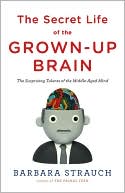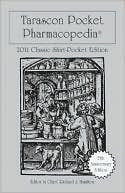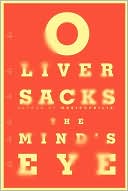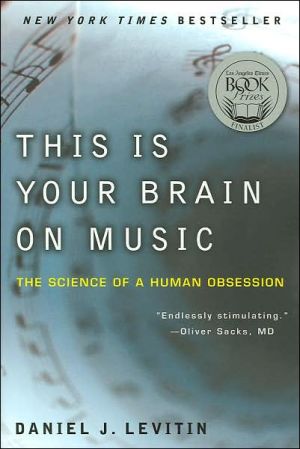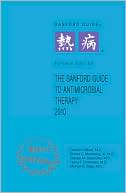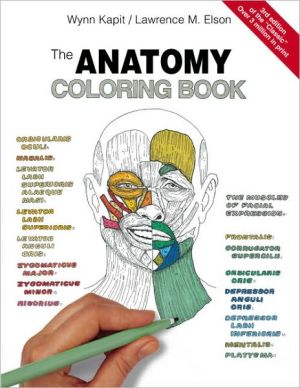The Secret Life of the Grown-Up Brain: The Surprising Talents of the Middle-Aged Mind
Search in google:
"As the bulge of the baby boom reaches middle age and beyond, we are worried about getting old. We are worried about getting sick. And we are really worried about losing our minds. Will we forget to tie our shoes? Fumble our words? Fall in our soup? Are our brains on an inevitable slide?" "While we might not be able to find our keys, our brains still have dazzling talents. In The Secret Life of the Grown-up Brain, you'll meet neuroscientists and psychologists who are proving how we have badly underestimated the middle-aged brain. We may lose some gray matter but we increase the white stuff (myelin) that lets us process information faster. As the grownup brain reorganizes itself, it creates powerful new systems that cut through complex problems to find unique solutions. We often become happier overall, since our brains manage emotions more calmly. Even if the brain cannot cram as many Civil War battle dates into its databank as it once did, it is at the top of its game. Because of better pattern recognition, we know how to size up situations and find answers quickly. We know how - with incredible ease - to juggle hundreds of e-mails, negotiate a complex deal, and cope simultaneously with a car that talks and a teenager who doesn't." The baby boom generation is also the first to enter middle and old age having had antibiotics, vaccines, better nutrition, and a cleaner environment; all of these improve the health of the aging brain. Barbara Strauch reviews the evidence pro and con on everything from nutrition, supplements, and exercise to the environment and genetics. Part scientific survey, part how-to guide, her book is much needed and reassuringyour smartest years are still ahead. Publishers Weekly Your mind is getting older, but it's also getting (mostly) better, argues this very comforting treatise on the aging brain. The bad news, according to New York Times health editor Strauch (The Primal Teen), is that, as we sail past our 40s, the brain slows down a mite and occasionally forgets names and loses its train of thought. The good news is that it more than compensates with experience and know-how, improved verbal and spatial skills, brilliant intuitions, and “sustained wisdom-ness.” The even better news, Strauch notes, is the improvements in brain function that flow from health regimens ranging from exercise (huge benefits) to drinking red wine (uncertain benefits) to chronic semistarvation (what was that about wine?) right into old age. And forget those myths about midlife crises and empty-nest syndromes: the middle-aged mind, the author insists, is at its peak of both competence and contentment. Sprinkling in conversations with graying but vigorous brain researchers who double as role models, Strauch gives a breezy rundown of developments in neuroscience that shatter the received picture of inevitable mental stagnation and decline. Her mix of intriguing pop-science and reassuring pep talk should win her hopeful message an avid readership. (Apr. 19)
